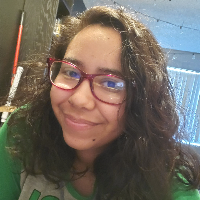Everything Wrong With The Storyline Of The Webtoon "True Beauty"
When I first read “True Beauty,” I was entertained by the drama until I realized the story wasn’t going anywhere. Yet rereading it later on in life gave me new reasons to like the Webtoon.
As the saying goes, “The story is different when you’re different,” which applies to all forms of storytelling like music, movies, poetry, and books. But that doesn’t mean the story’s problems don’t exist. Even with a new perspective, the story still has the same issues.
Here are the reasons why the Webtoon “True Beauty” is disliked.
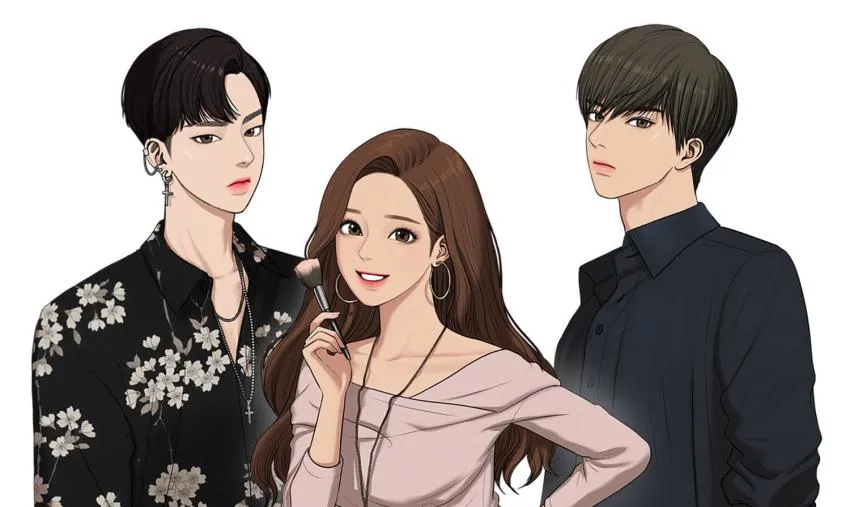
The Webtoon “True Beauty” Reflects Womens’ Insecurity Issues.
Jugyeong is the main character who is very insecure about her looks since she was labeled ugly by her bullies and family, when in fact, she’s an average girl who wears comfortable clothing with acne and glasses. So their remarks show that average girls aren’t considered beautiful in society’s eyes.
This is reinforced in the comic when women’s bare faces repulse men. But the comic takes it up a notch with the men ending relationships when they see their girlfriends without make-up, revealing that women are objectified and only valued by their looks.
Though it’s this rejection that makes her learn how to do her make-up and changes her style. Once she does this, she’s considered the prettiest girl in school, making Jugyeong feel the need to wear make-up every day to school. Without it, she fears she’ll lose her friends from her “ugliness.”
Fear of rejection is then the emotion that cycles the circle of society’s toxicity with having beauty standards since it goes from “You’re ugly” without make-up to “Your beautiful” with make-up, then to “You’re fake’ with a bare face, which again stems from men objectifying women.
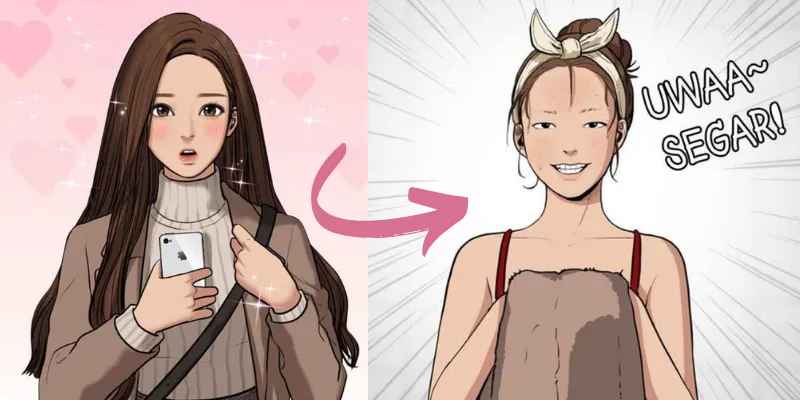
And since our patriarchal society oppresses women, women are only respected or desired if they’re conventionally beautiful. And its value gets sent in messages through the media, making young girls internalize that anyone outside of their beauty standards is ugly, which raises insecurity issues.
As a result, Jugyeong constantly compares herself to other women and feels nowhere near their beauty. She mainly does this when beautiful women are around her crushes, making her believe that they’ll never like her back.
Her thought process is something like, “Why would they like me if they have beautiful friends like that,” which remains when she gets in a relationship with Seojun, causing her to experiences a lot of anxiety and jealousy.
Being Conventionally Beautiful Comes With Privilege.
There have been times when Jugyeong goes out in public without her make-up if the trip is quick, but in one scene, she slipped, fell, and spilled something on someone. When this happened, the people told her to pay for their clothes while calling her ugly. In another, two guys were playing around and said to the other that Jugyeong was his girlfriend. In response, the guy said, “ew, f*ck you.”
Bad as it is, this was an experience that would happen before she started wearing make-up. But with make-up on, opportunities were handed to her. For example, when she began looking for a job, a convenience store manager quickly hired her because her looks (with makeup) could bring customers. Her looks (with make-up) are also how she was able to become an Instagram influencer and a model for a small mall.
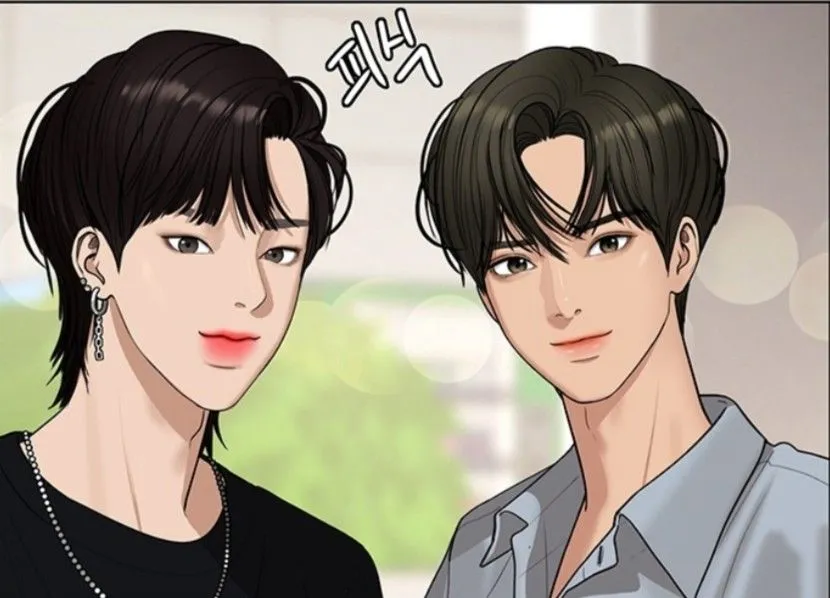
Though these privilege opportunities are explored more with her friends Suho and Seojun since their appearance is influenced by the boy band BTS. However, Seojun consistently gets scouted for modeling opportunities from his friends or make-up and clothing companies, which irritates him, knowing he’s just a pretty face to society. But he always takes the opportunity since his family struggles with money, which sadly wouldn’t have been possible if he wasn’t conventionally beautiful.
Besides this backlash, there’s a different side of a coin for women. For some reason, if a woman is both conventionally beautiful and confident, she appears like an attention seeker. This happens with Sujin, a girl with an hourglass body who wears revealing clothing. Because of this, she’s adored by men but envied by women.
And once she gains weight from stress eating, women point it out and talk bad about her. Though Sujin loses it all by throwing up, showing she suffers from bulimia. This then reveals that despite being conventionally beautiful, there’s unhealthy work involved to achieve and maintain it.
The Story’s Purpose Stopped With The Love Triangle.
The webtoon’s title, “True Beauty,” highlights the story’s central theme, but it didn’t achieve it by inserting the love triangle.
Though because men set beauty standards, women with insecurity issues secretly want to be liked by men as proof they’re not ugly. Jugyeong is not an attention seeker, but she believes she’ll be single forever for not being conventionally beautiful.
Suho is someone who saw and likes Jugyeong without make-up. He also fell in love with her personality. His crush on her alone and their journey just to say “I like you” is enough to reveal that she’s beautiful inside and out, but she doesn’t learn this with his confession.
Plus, throughout that journey, Seojun developed a crush on her and started being around her more often. Suho noticed this, so the two then silently rivaled for her affection, which wasn’t necessary.
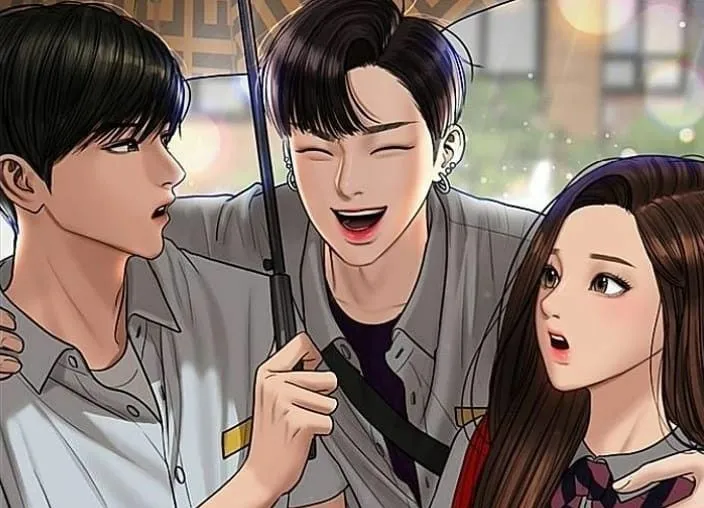
Because Jugyeong was considered “ugly,” Jugyeong is mainly considered about her face, yet ironically she doesn’t take care of her face despite having acne. When she first sought to make herself beautiful, she jumped into make-up instead of investing in skincare. In other words, she doesn’t have a skincare routine before or after putting on make-up, causing her to still have acne in her 20s.
To add to this irony, when Jugyeong did the make-up for a girl named Gowoon, she told her that she wouldn’t be making her beautiful but that she was bringing out her hidden beauty. This means that Gowoon is already beautiful and that Jugyeong was just highlighting her beauty. Yet Jugyeong couldn’t believe the same about herself when Gowoon looks just like her.
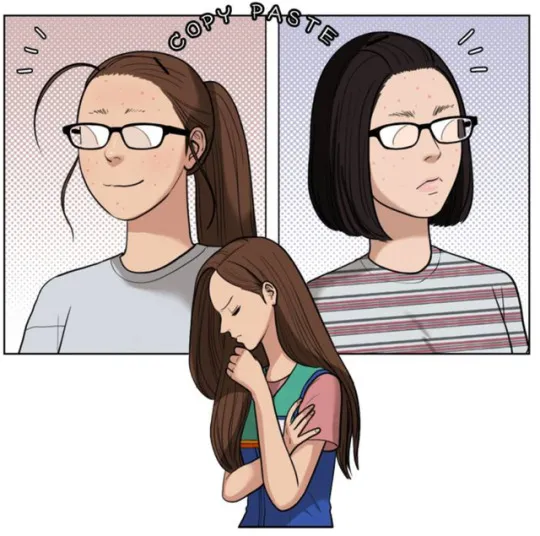
However, even though Gowoon and Jugyeong look alike, Gowoon has a different personality and perspective. Gowoon is confident and knows how to stand her ground. Gowoon also doesn’t care about what others think about her and knows her self-worth, which she does by focusing on and improving her strengths. This then reveals the two ways we can live: self-conscious by beauty standards or confident in our abilities.
So Jugyeonng could have been like Gowoon if she did the same as a way to learn to love herself, but she doesn’t. Instead, she gets a love triangle with two extremely attractive male characters for no reason.
A love triangle is a realistic desire since it’s supplemental proof of being attractive, but men’s validation doesn’t solve insecurity. Insecurity is a personal issue that only the self can address. There can be support, but the overall work is done internally, making validation useless if no work is done inside.
Jugyeong puts nothing in to learn to love herself whatsoever that she can’t believe in the possibility of Suho or Seojun liking her. This then shows how society influences women’s insecurity by showing how focused women can be on beauty standards.
But in a story about true beauty, there should have been the effort of her learning self-love instead of relying on others to fix her self-esteem. Instead, her insecurity issues remain into adulthood, making the love triangle a meaningless tactic to create drama and hold an audience.
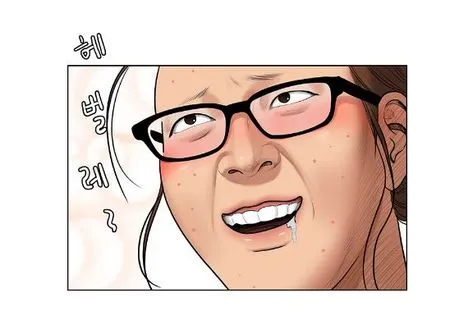
To add on, Jugyeong is also concerned about their looks as well. Because Suho and Seojun are conventionally beautiful, she feels like they are out of her league, despite both saying that they don’t care about appearances. Suho has explicitly told her repeatedly that she’s pretty and cute without make-up. But her mind refuses to believe that, which shows how superficial she is.
That’s normal as a teenager, but she maintains this mindset in her 20s that once Seojun is her boyfriend, she always gawks at how handsome he is. Even when Jugyeong thinks of him, she reimagines the moments she would gawk at him, supporting that she just likes having an attractive boyfriend.
Jugyeong Remains The Same Throughout The Comic.
Aside from her insecurity issue, Jugyeong receives no character development. From a teenager to her 20s, she remains a naive, carefree person. She’s also passive in the face of conflict and keeps her issues to herself when she needs help.
This is first seen with her trust in Sujin, who would use her for two reasons: To make herself stand out or guide her away from Suho. Jugyeong’s best friend Sua caught on early that Sujin was using her, but Jugyeong refused to believe that.
Then in college, she let a creepy man follow her around by not telling him to stop. And when she does speak up, she lets him yell at her and almost hit her. She gains a moment of confidence to stand up to him the next time around, but it quickly dissolves when her boyfriend Seojun arrives.
The same happens when a new friend of hers starts copying everything Jugyeong does. Jugyeong never says anything until she starts stalking Seojun, but she ends up in a dangerous situation where Seojun has to save her again.
But during these issues, she would never tell Seojun about them. He would have to find out them himself by catching her amidst the issue. Because of this, he would feel bad not know something is wrong and worry about what she wasn’t telling him, even though her reason for not speaking up was not to bother him, which was another cause for their relationship issues. Yet despite being aware of this, she continuously never learns to stand up for herself or reach out for help.
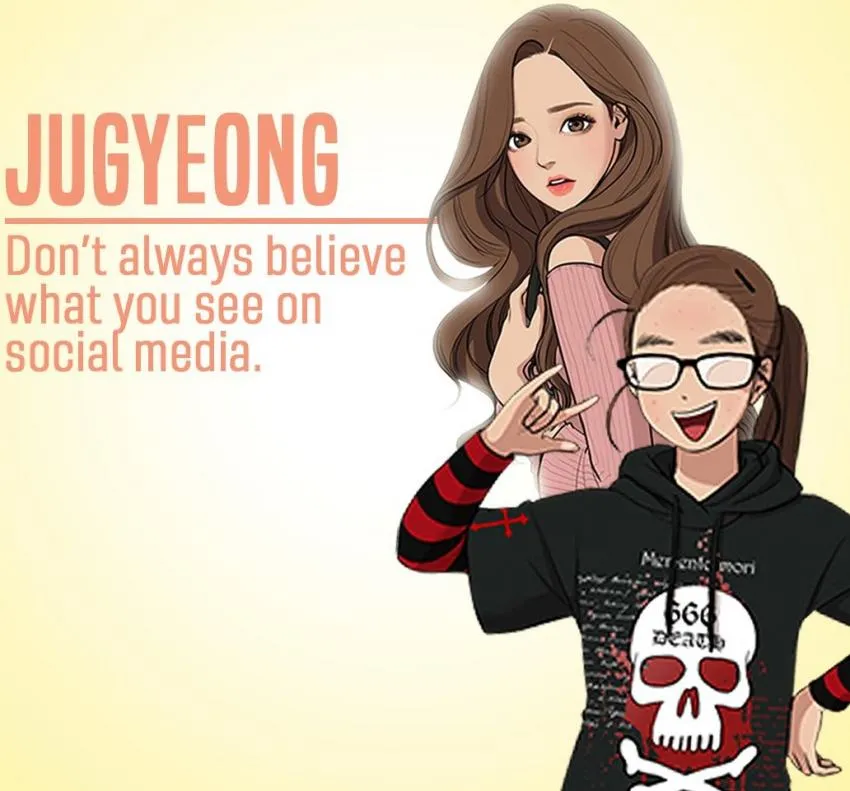
To add on, before she learned how to do her make-up, she was actively reading comics, watching horror movies, and listening to punk, rock, and metal bands. But once she started doing her make-up, she slowly stopped doing and loving these things she was passionate about.
And if she does, Suho is the only person who accompanies her in her passions since he got to know her without make-up, but most of the time, Jugyeong’s actual interests are hidden.
The Story “True Beauty” Has No Direction.
After high school, the comic shows the journey of how Jugyeong and Seojun start dating, which isn’t long. So the remaining chapters are just about the problems they experience from Jugyeong’s insecurity and Seajun’s career as a rising singer. After their relationship ends, another relationship journey was created with Suho. But again, what is this supposed to do?
The issues are realistic since insecurity can exist well into adulthood, but that’s the thing, our issues from trauma will never fully go away. But that doesn’t mean we can’t try to live a better life where they’re not entirely controlling us. So because Jugyeong makes no effort to love herself, there’s no development, making whatever drama that occurs just us viewing her extended life for no reason besides the author’s need to make money.

The Webtoon “True Beauty” definitely has its good sides by showing us how insecurity influences women and how lookism provides conventionally beautiful people with privilege.
However, the message of the comic is drowned when a love triangle is created. Realistic in the desire for validation, it’s doesn’t solve insecurity, making it an insertion to create drama, especially when in neither relationship Jugyeong doesn’t learn to have self-worth, which has been the root of the drama.
This then shows that her underdevelopment is also why the story has been stretched for no reason besides the author’s need to have income.
With that said, the story is good, but only in the beginning before Jugyeong’s insecurity and the love triangle are dragged.
Opinions and Perspectives
I can totally relate to Jugyeong's struggles with self-image. It's frustrating how society puts so much pressure on women to look perfect all the time.
While I understand the criticism about the love triangle, I actually enjoyed how it showed different perspectives on beauty through Suho and Seojun's characters.
The article makes a great point about privilege and lookism. I've seen this happen in real life where people are treated differently based on their appearance.
Am I the only one who thinks the story could have been so much more powerful if it focused on Jugyeong's self-discovery journey instead of the romance?
The comparison between Gowoon and Jugyeong is really interesting. It shows how two people with similar looks can have completely different levels of confidence.
Actually disagree about Jugyeong having no character development. I think her struggles are realistic for someone dealing with deep-rooted insecurity.
The part about her hiding her true interests really hit home. It's sad how many people feel they need to change their whole personality to fit in.
I wish the author had explored Sujin's storyline with bulimia more deeply instead of just using it as a plot device.
Honestly, the makeup thing bothered me too. A skincare routine should have been the first step before piling on makeup.
The webtoon definitely missed an opportunity to show real personal growth and self-acceptance.
I found it interesting how society's beauty standards affected both male and female characters, though in different ways.
Sure, but let's not ignore that this is still one of the few comics that actually addresses these issues, even if imperfectly.
The article really nails the problem with using romance as a solution to self-esteem issues.
I actually liked how it showed Jugyeong's ongoing struggles. Sometimes there isn't a neat solution to insecurity.
Does anyone else think they dragged out the story way too long? It lost its message somewhere along the way.
Totally agree about the lost potential. This could have been a powerful story about self-love.
The way men reacted to women without makeup was so extreme and unrealistic. I mean, come on.
What bothered me most was how Jugyeong never seemed to learn from her experiences.
I think people are being too harsh. The story reflects real insecurities many of us face.
The privilege aspect was eye-opening. Really made me think about how we treat people differently based on looks.
True beauty should have been about finding inner strength, not getting validation from hot guys.
The part about her not telling Seojun about her problems was so frustrating to read.
Anyone else notice how her personality completely changed after she started wearing makeup? That was pretty telling.
It's interesting how different the story feels when you reread it at different ages.
The article missed mentioning how the story actually empowered some readers to embrace their natural beauty.
I saw myself in Jugyeong's character, especially her fear of being seen without makeup.
The love triangle wasn't the problem, it was how it overshadowed the more important themes.
I actually learned a lot about makeup techniques from this webtoon, even if the message was mixed.
The story did a good job showing how beauty standards affect daily life and opportunities.
You raise a good point about validation not solving insecurity. That really resonated with me.
I found the contrast between Suho and Seojun's attitudes toward appearance quite meaningful.
The story's take on social media influence and beauty standards was pretty spot on.
It's sad how accurate the workplace discrimination based on looks was portrayed.
I actually think the length of the story helped show how deep-rooted these issues can be.
The parallel between Gowoon and Jugyeong was my favorite part of the analysis.
